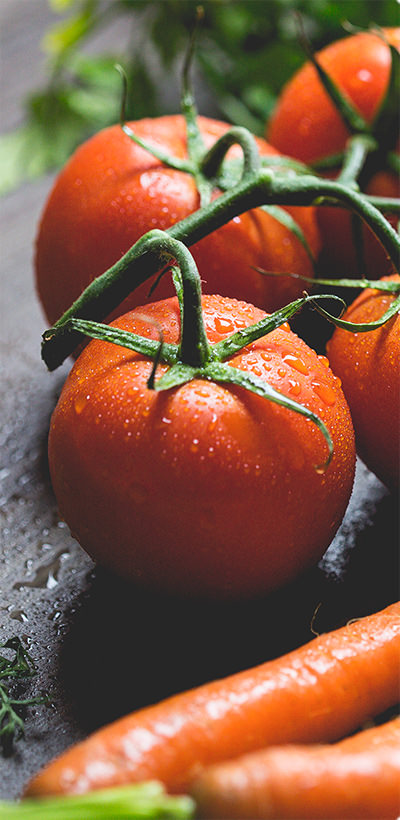Pomegranate Crunch Organic Lettuce
Great looks and taste. These miniature Romaine heads have deep burgundy leaves with a speckled green-red interior and are sure to add pleasing colour to any salad or burger. Good disease resistance package. Matures in 50-55 days. Pelleted seed. Approx. 50 seeds/pkg.
Pelleted seed is coated with clay to make handling easier and reduces the amount of thinning required. To germinate, pelleted seed requires more moisture than regular seed so keep moist until coating has cracked.
Scroll down for more details and growing information.

Details
Growing Information
Planting:
Direct seed in early spring, as seed will germinate between 40-80 degrees F. Sow thinly 1⁄4 inches deep and 1 inch apart. Spacing: Leaf types - 6 inches apart with 12 inches rows; Iceberg - 12 inches apart with 18 inches row spacing; Romaine - 8-10 inches apart with 12-16 inches rows and Butterhead/Batavia - 10-12 inches apart with 12 inches row spacing. Start transplants indoors 4-6 weeks before last frost date for transplants. Make succession plantings every 1-2 weeks to ensure a constant harvest.
Growing:
Choose an area with full sun to partial shade and soil pH of 6.2-6.8. Lettuce is a heavy feeder and prefers a rich, well cultivated soil with good drainage. Some success can be expected even in poor soils using the loose-leaf types. Add plenty of compost or well-rotted manure prior to planting. Benefits from regular feedings with a nitrogen rich fertilizer. Mulching is useful to keep soil cool and reduce weeds.
Harvesting:
Harvest lettuce early in the morning. Looseleaf types can be picked as soon as leaves are large enough to eat. Harvest head types when they are firm and well wrapped. If your lettuce becomes bitter during warm weather, wash and place in the fridge for a couple of days before eating.
Pests & Diseases:
Distract insects by using row covers and companion planting. Rotenone and Trounce will control aphids, plant bugs and leaf hoppers. Slugs cherish lettuce; use slug bait to control slugs.
Companions:
Most vegetables, carrot, garlic, onion and radish make the best companions.



